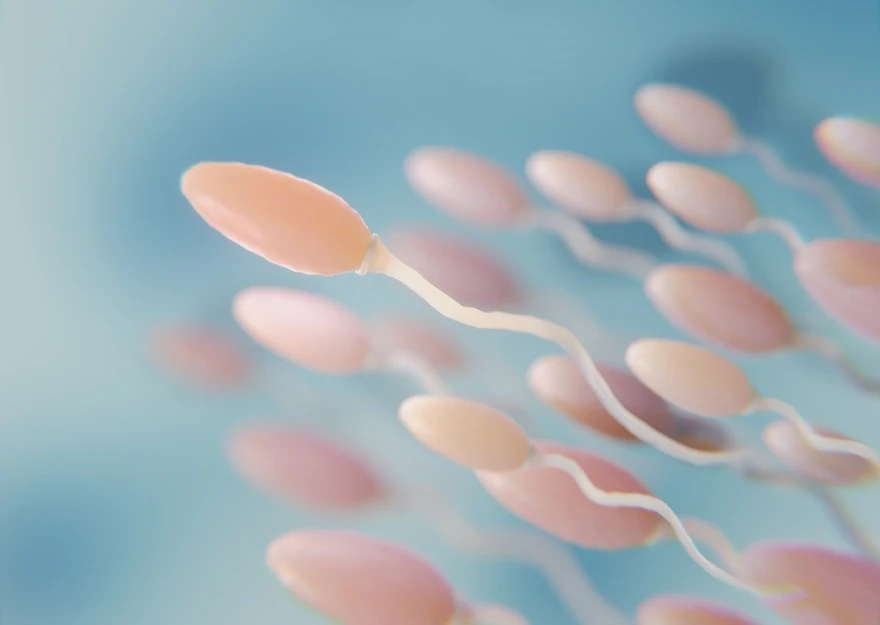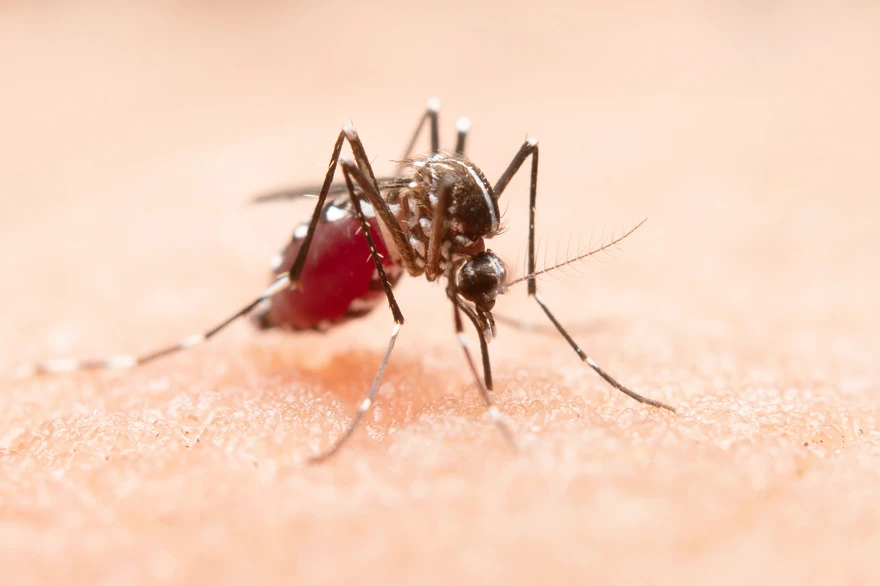Preventive Healthcare
Azoospermia: Causes, Symptoms, Types, & Treatment Options
1244 Views
0

What Is Azoospermia?
Azoospermia is a significant cause of male infertility that occurs when there are no sperm present in a man's ejaculate or semen. Usually, sperm is produced inside a man's testicles housed within his scrotum.
The sperm then travel through the male reproductive system to mix with fluids and form semen. However, in azoospermia, this process is hampered for various reasons. As per statistics, azoospermia affects about 5-10% of men who are seeking fertility evaluation.
What are the Different Types of Azoospermia?
There are primarily two types of azoospermia, each with distinctive causes and treatment pathways:
- Obstructive Azoospermia: Despite normal sperm production, there is a blockade within the reproductive tract that blocks a measurable sperms from reaching the semen.
- Non-Obstructive Azoospermia: It's characterised by poor sperm production where men do not produce sufficient sperm detectable in the semen.
Understanding the differences between obstructive and non-obstructive azoospermia is crucial for determining the appropriate treatment options and addressing male infertility effectively.
How Common is Azoospermia?
While infertility might seem a daunting maze, you're not alone. Approximately around 12 to 13 out of every 100 couples face infertility issues. Male-factor infertility contributes to almost 50% of these cases, with azoospermia being a leading cause.
Even though azoospermia is relatively rare and affects about 1% of the male population, it accounts for 10-15% of male infertility cases.
What are the Symptoms of Azoospermia?
The tricky part about azoospermia is that it is not always present obvious azoospermia symptoms. Many couples discover they have this condition face trouble in conceiving, despite regular unprotected intercourse. Signs related to the underlying causes might surface, like hormonal imbalances or genetic conditions.
Some potential symptoms may include:
- Reduced sexual drive
- Erectile dysfunction
- Swelling or lumps around the testicles
- Decreased Facial or Body Hair
Understanding the signs of azoospermia is important for couples trying to conceive. Early detection can help lead to better treatment options and outcomes.
What Are the Causes of Azoospermia?
Azoospermia, the absence of sperm in the ejaculate, can be caused from various factors which are classified into pretesticular, testicular, and post-testicular causes. Recognising the different types of azoospermia and azoospermia causes is important for accurate diagnosis and effective treatment.
Post-Testicular Azoospermia (Obstructive Azoospermia)
Post-testicular azoospermia, also known as obstructive azoospermia, occurs when there is a blockage present in the reproductive tract that prevents sperm from being present in the ejaculate. This blockage can result from congenital abnormalities, infections (such as epididymitis), or surgical procedures (like vasectomy).
In these cases, sperm production is normal, but an obstruction prevents the sperm from reaching the ejaculate, leading to azoospermia symptoms like infertility despite normal hormone levels and testicular function.
Pretesticular And Testicular Azoospermia (Nonobstructive Azoospermia)
Pretesticular and testicular azoospermia, both classified as nonobstructive azoospermia, result from issues that affect sperm production. Pretesticular causes can include hormonal imbalances, such as low testosterone levels or problems with the pituitary gland.
Testicular azoospermia is directly associated to abnormalities in the testicles, including genetic disorders like Klinefelter syndrome, exposure to toxins, or damage caused by an infections or trauma.
Azoospermia symptoms in these cases often include low libido and smaller testicles, along with infertility. Understanding these causes is crucial for men facing infertility, as targeted treatments may be available depending on the underlying issue.
How Is Azoospermia Diagnosed?
Azoospermia diagnosis begins with a comprehensive medical history and physical examination to assess reproductive health.
- The primary test is a semen analysis, which involves examining the ejaculate for sperm presence.
- If no sperm is detected, additional tests may be performed to check the underlying cause. These can include hormonal evaluations to check testosterone and follicle-stimulating hormone (FSH) levels, and genetic testing for abnormalities.
- A scrotal ultrasound may also be performed to identify any structural issues in the testes or reproductive tract.
This comprehensive approach ensures an accurate diagnosis and helps determine the azoospermia treatment options.
What Other Tests Diagnose Azoospermia?
Along with semen analysis, azoospermia can be diagnosed by hormonal evaluations to measure testosterone and FSH levels.
Genetic testing can also help to identify the chromosomal abnormalities, while a scrotal ultrasound can identify structural problems in the testes or reproductive tract.
How is Azoospermia Treated?
Once a diagnosis has been confirmed, your doctor will discuss the available azoospermia treatment options with you. The treatment approach primarily depends on whether you have obstructive or nonobstructive azoospermia.
For obstructive azoospermia, microsurgery can often unblock the reproductive tract and restore normal sperm flow. In cases of nonobstructive azoospermia, hormone therapy or lifestyle modifications may help enhance sperm production.
In some cases where natural conception might not be possible, sperm extraction followed by IVF (In-vitro Fertilization) or ICSI (Intracytoplasmic Sperm Injection) are the potential pathways to parenthood.
Will Sperm Come Back After Azoospermia?
The prognosis of azoospermia treatment depends on the underlying cause. Recovery is often possible in cases of obstructive azoospermia, as surgical procedures can typically remove the blockages. For nonobstructive azoospermia, treatment outcomes may vary.
Is There a Cure for Azoospermia?
While there's no guaranteed cure for azoospermia, various treatments can significantly improve your chances of conceiving a child. Medical management, surgical interventions, and assisted reproductive technologies all offer promising possibilities for couples dealing with azoospermia.
How can Azoospermia be Prevented?
Preventing azoospermia may not always be feasible, especially due to genetic defects or congenital abnormalities. However, adopting a healthy lifestyle and minimising exposure to harmful substances can aid in prevention of azoospermia.
Men should maintain a balanced diet, exercise regularly, avoid smoking, excessive alcohol, and recreational drugs. Regular medical check-ups can also help to identify and managing the conditions like hormonal imbalances or infections early. Protecting the testes from an injury and avoiding an exposure to environmental toxins or heat (like hot baths or saunas) are also important. Managing stress and maintaining an overall reproductive health can further reduce the risk of azoospermia.
What is the Outlook for People with Azoospermia?
While an azoospermia diagnosis might feel overwhelming initially, remember - this isn't the end of your parenthood dreams. With advancements in fertility treatments, many men with azoospermia have successfully fathered biological children.
Can I get Pregnant Naturally if My Husband Has Azoospermia?
Natural conception might be challenging in cases of azoospermia; however, if assisted by reproductive techniques like IVF offer promising alternatives. It's essential to discuss your personal circumstances and options with a healthcare provider.
Is IVF the Only Option if My Partner has Azoospermia?
While IVF is commonly recommended for men with azoospermia, it isn't always the only solution. Depending on the underlying cause of azoospermia, other treatments such as hormonal therapy or surgery to correct blockages may help restore sperm production or release.
Are There Any Natural Remedies That Can Help?
Although azoospermia caused due to any structural or genetic abnormalities may not respond to natural remedies, adopting a healthy lifestyle can enhance overall health and fertility.
Regular exercise, a balanced diet, proper hydration, stress management techniques, and avoiding harmful substances can all positively impact reproductive health.
How Do I Take Care of Myself?
Receiving a diagnosis of azoospermia can be emotionally challenging. It’s important to stay positive by eating a balanced diet, exercising regularly, getting enough sleep, and seeking support from loved ones or support groups. Remember to keep regular follow-ups with your healthcare provider and adhere to the prescribed treatment regimen.
Conclusion
While azoospermia may seem like a significant obstacle in your journey towards parenthood, it's essential to remember that hope is not lost. With the right knowledge and medical support, overcoming this hurdle is possible. The specialists at Metropolis Healthcare are committed to providing accurate diagnostic services and empowering you to make informed decisions about your health. Trust in their expertise for reliable test results delivered right at your doorstep with their convenient at-home sample collection service.
While azoospermia may appear to be a major barrier on your path to parenthood, it's important to remember that there is still hope. With the right information and medical support, you can overcome this challenge. The specialists at Metropolis Healthcare are dedicated to providing accurate diagnostic services and empower you make informed decisions about your health. Trust in their expertise for reliable test results delivered right at your doorstep with their convenient at-home sample collection service.
Remember - taking charge of your health is within reach; all it takes is the first step!























 WhatsApp
WhatsApp